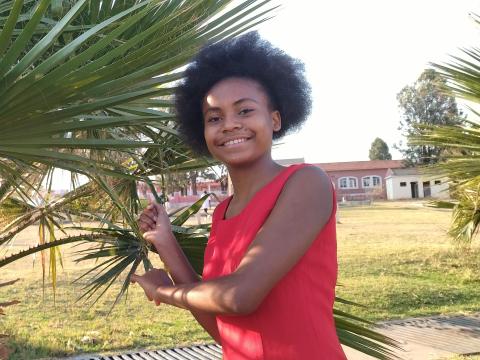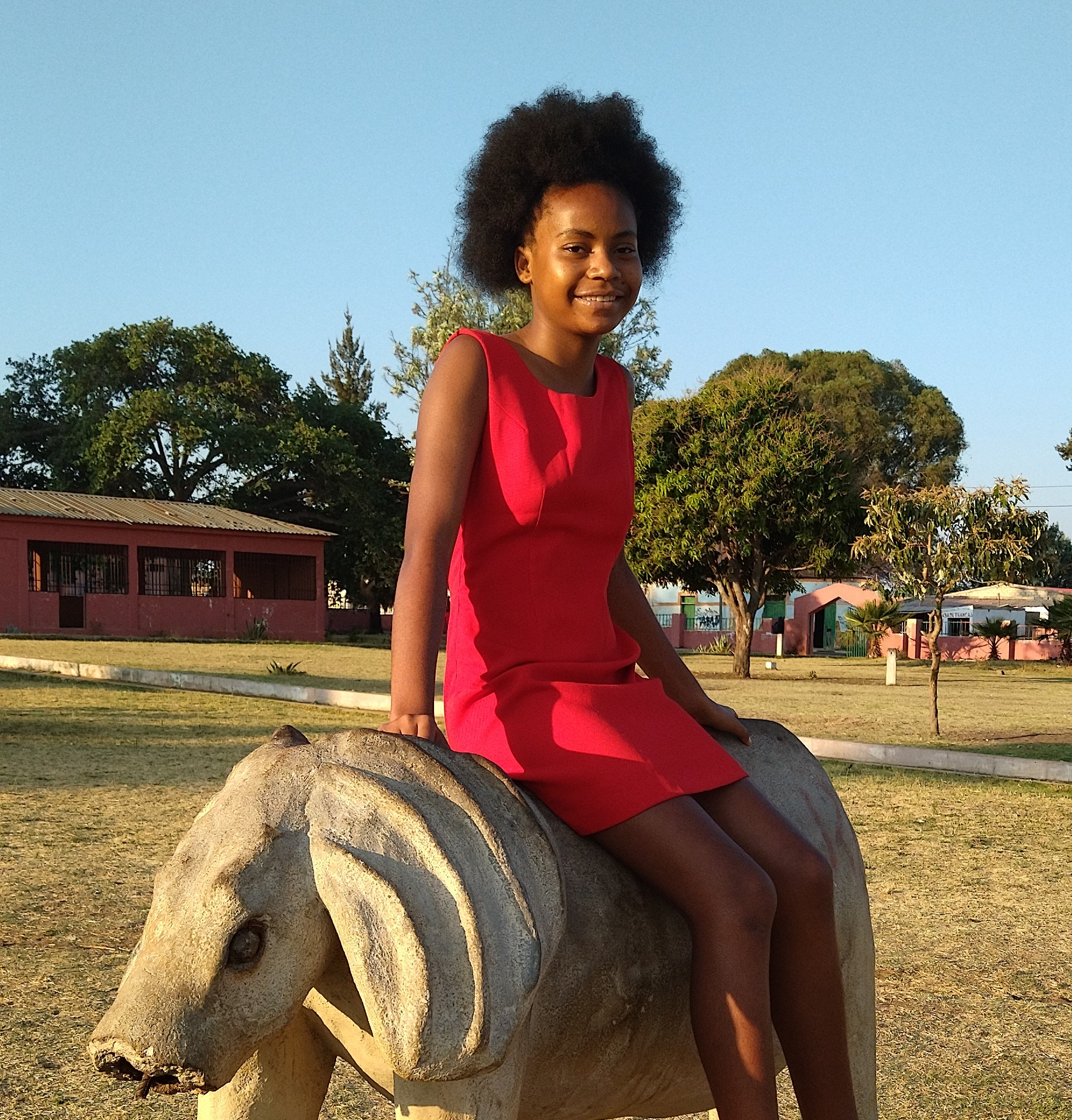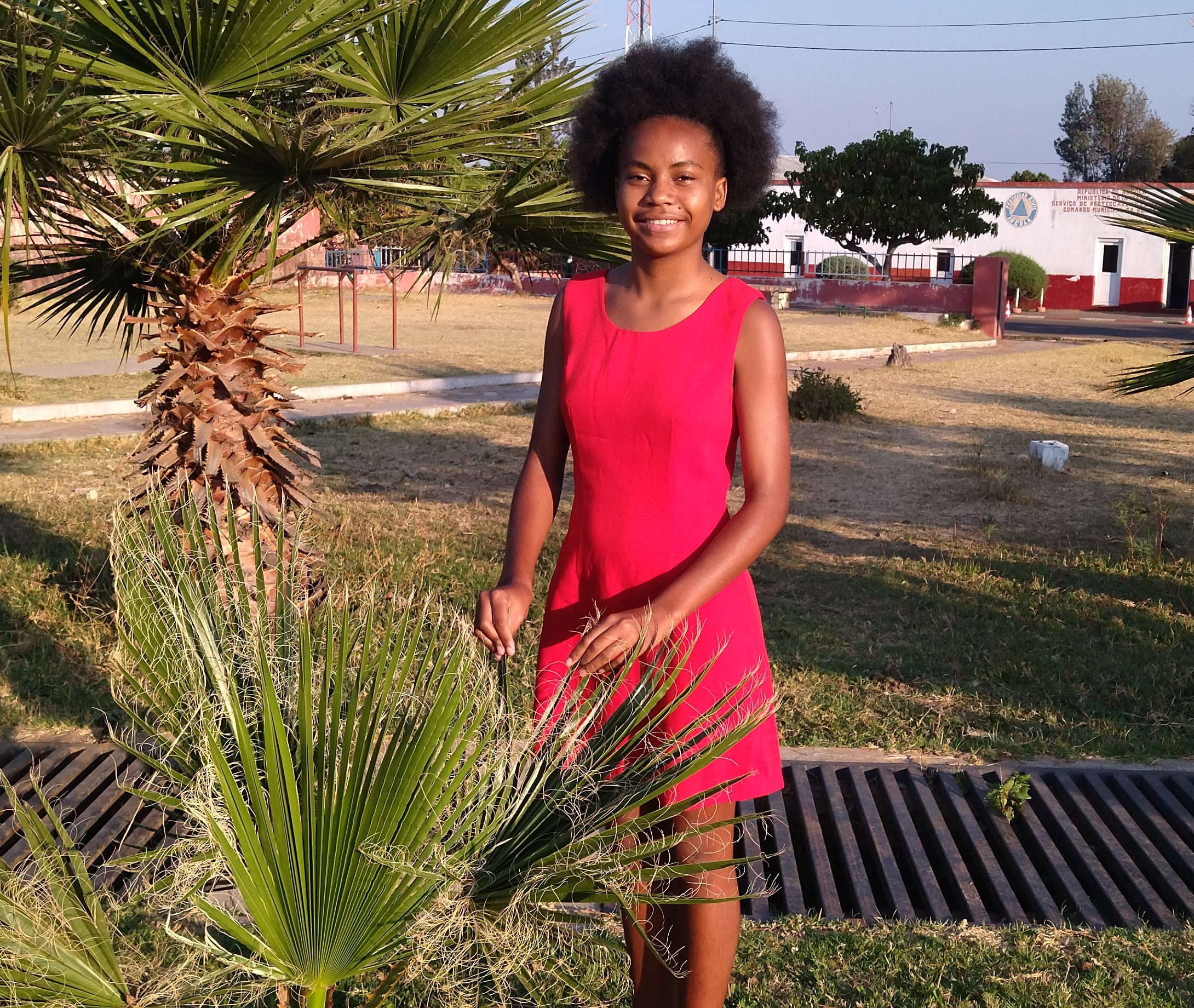Access to Information Contributes to GREATER MENSTRUAL DIGNITY for Girls in Huila

Azinaide is a 14-year-old girl who attends the "Safe Space" in the municipality of Humpata, Huíla. Like many girls, at the beginning of her reproductive years, Azinaide faced many challenges in accessing information, a reality commonly seen in many vulnerable communities, and talking about puberty or menstruation is still considered taboo within families.
According to the World Bank, at least 500 million women and girls worldwide do not have adequate access to menstrual hygiene facilities, and more than a third of schools do not have equipped toilets with favorable conditions. For adolescent girls, access to drinking water and clean, functional, and private sanitary facilities to manage their menstruation makes a big difference in keeping them in school, and this has contributed greatly to the reduction in school drop-out rates among girls in the puberty phase. In addition, the lack of adequate menstrual hygiene products increases the risk of contracting various types of infection, as several studies have shown that girls and women are often the most prone.
Azinaide started menstruating very early, and it was a novelty for her; she hardly knew what it was or what she should do, as is normal for any young girl. Frightened, she thought she had a wound on some part of her body and was scared during the days she had her period; she hid and didn't share it with anyone, doing her hygiene in an inappropriate way because she had no guidance.
"At first, when I received the invitation to attend the Safe Space, I didn't know what I was going to learn, but after the first meeting, I was very happy because I knew that all my doubts would be cleared up," Azinaide said happily.

Safe Spaces a place where children learn about themselves
As the training went on, Azinaide saw her expectations exceeded day after day. She told us that she learned a lot about her body, how it is made up, how to sanitize herself properly, how to use a sanitary napkin, and how to use her clothes to her advantage, especially on the days when she is menstruating.
"I also learned about the importance of laying out panties in the sun rather than in the shade and that we shouldn't lay them out in damp places because it's harmful," she said.
Many cultures in the community still see menstruation as taboo; it is a subject that is hardly ever broached, and as a result, many girls are unable to talk about it openly or seek help to understand menstruation.This lack of information and openness to dialogue means that the use of menstrual hygiene products in schools makes girls feel ashamed, and many of these adolescents feel forced to miss school until their period is over, leaving these future women increasingly distant from realizing their dreams and opportunities. Lectures on sexual and reproductive health are given in schools, and this project implemented by World Vision in Angola expects that by the end of the activities more than 20,820 girls and boys will be covered by the Safe Spaces in schools, and around 100,000 girls will benefit from menstrual hygiene materials.
"At the meetings, I learned that our bodies are developing until we are older and that early pregnancy can put our lives at risk, as well as the danger of early and unprotected sexual involvement which facilitates exposure to Sexually Transmitted Diseases and this could even take my life," emphasised Azinaide.

The aim behind these interventions is to contribute to a world in which all women and girls can take care of their menstrual health safely and with dignity. The Safe Spaces have been implemented by World Vision since 2022 in partnership with the Government of Angola, as part of the Learning and Education for All Project (PAT-II), an initiative funded by the United Nations Population Fund (UNFPA).
Azinaide is passionate about her studies and says that she didn't like getting pregnant and studying at night or dropping out of school. Azinaide is a leading teenager among other girls her age, she looks at the girls around her and notices that many of them end up getting pregnant at a very young age, and she testifies that it would be very good if all the knowledge she has received at Safe Space could be passed on to other girls so that they too can enjoy the opportunity to choose a better and more promising future.
"I don't intend to date now because I've learned that my body isn't well-developed yet." Azinaide.